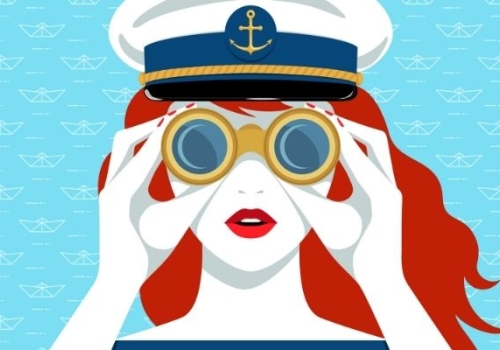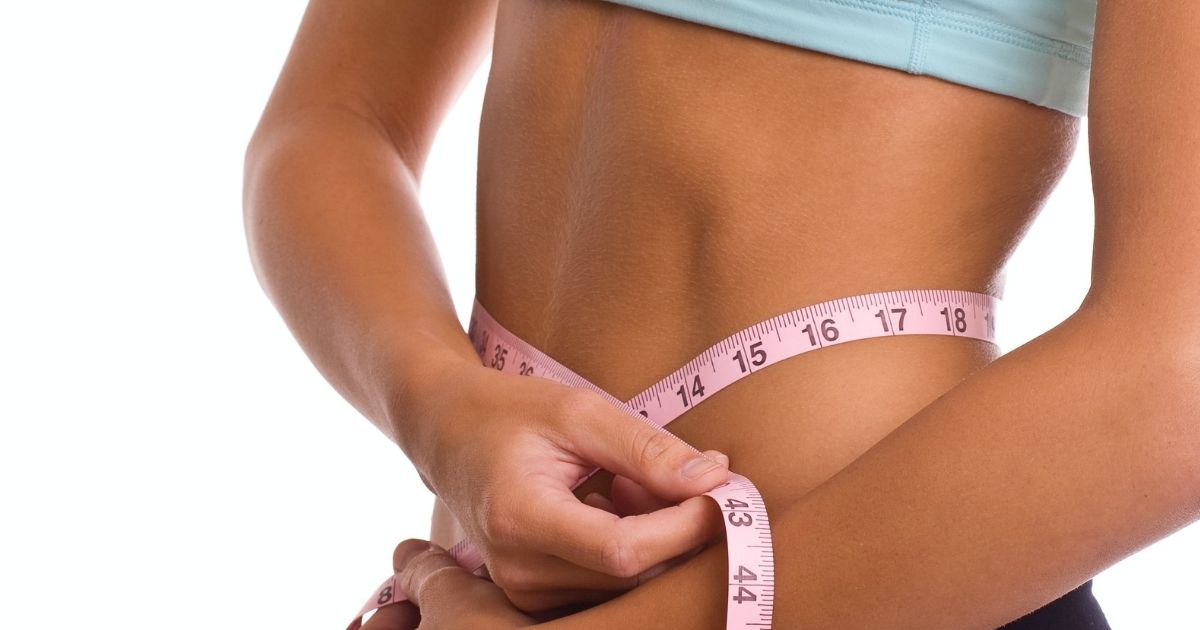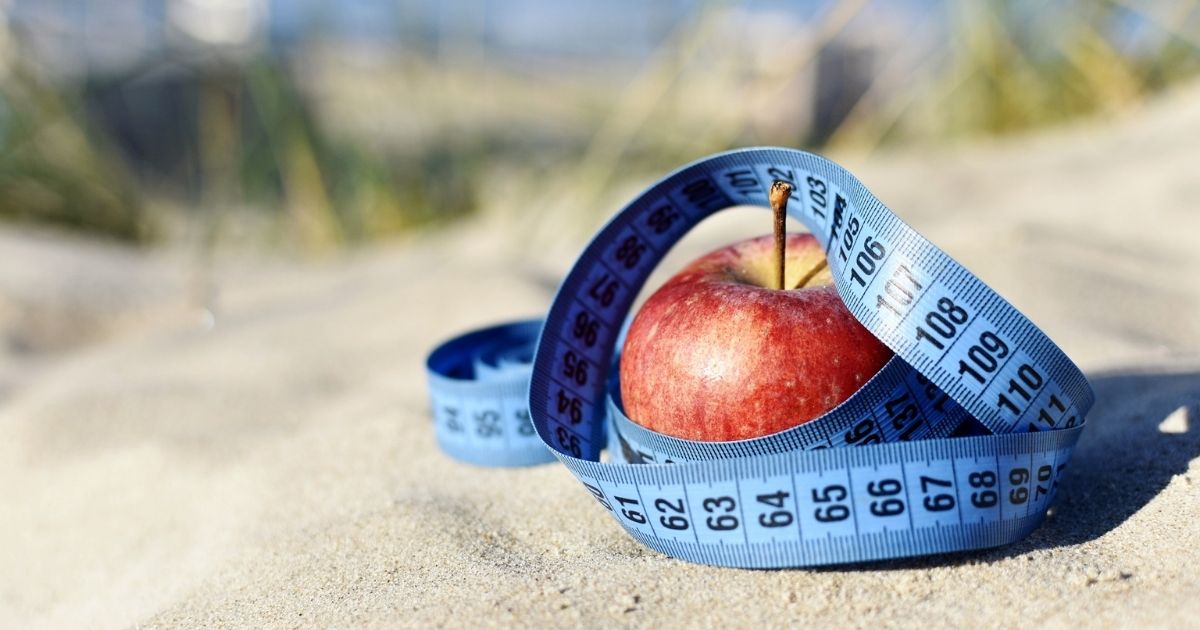
Resolutions, detoxes and diets...How's it going? Are you living in a haze of green smoothies and dawn yoga sessions, or have you fallen off the wagon and eaten half the crew mess Pringles?
If you’re locked down in a port or shipyard, maybe getting fit is the only thing you can do right now, but fad diets are ever present, aren't they? Pre-season, mid-season, crossings, ‘seatox’… At any given time, someone in our communal living space seems to be abandoning dairy, going meat free or cutting carbs (cut to image of chef headbutting galley wall).
In this privileged world of yachting, food is abundant, there are lunch and dinner buffets, crew mess cupboards bursting with snacks, leftover guest lobster… and it’s ironic that amidst all this glorious food, many of us are trying very hard not to eat it.
We can't deny that crew are often viewed as an accessory to the boat, sometimes even dressed to match the deck cushions. Crew are also expected to conform to a certain dress size and this is where the Body Image Monster starts to rear its head. A crew agent I know used to get upset with all the requests from boats for ‘no girls over a size 10’."It made me feel like I was a part of the problem," she said, "and I would get really anxious when I had to try and find a tactful way to tell a well qualified girl that she didn’t fit the physical profile."
Similarly, a crew friend of mine was once pulled to one side and told her weight gain that summer season was ‘unacceptable’ (she had gone up a uniform size) and she would have to address it. Another told me that she looks back at gaunt photos of her sudden and dramatic weight loss from clinical depression on board a large, otherwise well-run yacht and can’t believe nobody in a senior position ever checked she was ok. Concern is usually more forthcoming when weight is gained.
Men too are not immune as the pressure to have a ‘buff’ body is stronger today than it has ever been. And it’s not only work related - as crew tend to do half their socialising in swimwear the perceived pressure from peers can get quite extreme.
The moral questions raised by these situations are many and oft discussed in crew circles, but the immediate question is how can we tell when healthy self-care crosses a line into the more problematic world of obsession, bingeing, punishing exercise or just plain eating disorders? How do we keep a sense of proportion about our, well, proportions, when our very jobs can depend on whether or not we fit the mold?

For most people their relationship with food and exercise is fairly private, or at least safe from the scrutiny of their colleagues. But working on a boat is different and it can expose or exacerbate problem relationships with food, exercise and our bodies. Just stop and think about your crew. I bet you can name the girl (sadly it is still 75 per cent girls) you suspect of having an eating disorder; the guy on board who becomes aggressive if he can’t get to the gym that day; the one constantly necking supplements; the one lecturing everyone on organic food and sugar; the one who stands nibbling salad from a bowl before hastily leaving the crew mess...It’s so public isn’t it? We all see and comment on each other’s rituals and habits, and while sometimes it can be a source of amusement and banter, it can also feel invasive and annoying.
However, there are times when our eating and exercise habits cross the line and affect our ability to do the job, so how do we recognise when we or someone around us is not ok?
The first step is to educate ourselves on where the line sits between a temporary health kick and the diagnostic criteria for an actual eating disorder. Charities like BEAT, the Butterfly Foundation and the National Eating Disorders Association (NEDA) provide really useful information and basic questionnaires to help clarify if there is cause for concern. They also offer advice and have chat and text functions so you can speak to someone in real time. Greater awareness and a few tactful questions could help prevent someone doing years of damage to their body and, in extreme cases, it could save their life.
It can be really hard to self-identify when the thing we are trying to control now has control over us. How does one stand back and appraise the situation when our powers of reasoning are impaired? That’s why the first person who notices the problem is often a colleague or a friend. Some of the typical behavioural and psychological warning signs to look out for follow at the end of this article, along with the websites and contact details of useful organisations.
There are some situations peculiar to yachting that can fog the waters too. I think for many of us it took a while to find our new ‘level’ after joining the industry. The amount we used to eat in our previous lives, perhaps working a steady eight or nine hour day, was suddenly replaced by massive chef-made meals and greater physical activity. I remember being shocked at the end of a particularly tough season that I had gained no weight at all after putting away huge amounts of food (clear up the croissant basket anyone?) because running up and down stairs for 16-18 hours a day burned it all off. Another season I gained a load of weight before losing it again.

Many crew have a bit of a wobble while they find their feet with their new levels of consumption and energy needs. We can build muscle over months of repetitive physical work that we didn’t have before, and lose and gain weight in ways we never have before. It can be hard to keep a steady grip on how we’re doing, or to know if things are getting out of hand.
There are also many misconceptions about disordered eating which means it can slide by undetected. Just a little research digs up some surprising facts:
-
It’s not all anorexia and bulimia. Binge eating disorder (BED), avoidant/restrictive food intake disorder (ARFID) and a more recent proposal orthorexia nervosa (excessive preoccupation with healthy food) can all take a serious mental and physical toll.
-
25 per cent of people with an eating disorder are men (beateatingdisorders.org.uk).
-
20 per cent of anorexics and 23 per cent of bulimics die from suicide (verywellmind.com).
-
Bulimics very often go unnoticed as they can have a normal BMI.
-
Bulimic purging isn’t necessarily vomiting or laxative use, it can also be excessive exercise (see England cricketer and bulimia sufferer Freddy Flintoff’s documentary ‘Living with Bulimia’).
-
Often eating disorders are not purely about food and weight, but about dealing with stress, past traumas and unwanted emotions.
-
Many sufferers live with their disorder in secret for many, many years.
-
Electrolyte imbalances caused by bulimia can cause heart arrythmia and even death.
-
Very limited or very low fat/elimination diets will almost inevitably cause some level of depression due in part to Tryptophan deficiency, kick starting what can become a downward spiral.
Peculiar behaviour is often just the visible tip of an iceberg of pain and distress, so it's important that captains and HODs are aware of the signs, out of compassion but, also because these are serious mental illnesses and there may be bigger problems on the horizon. When crew are away from their families and friends, their only lifeline if they are in trouble is their fellow crew.

Of course, we can all use food and exercise in ways that are not necessarily healthy, without crossing the line, but sometimes it’s good to stop and check in with ourselves and just ask the question: Is this dominating my life? If the answer is yes, and things have become unmanageable, with professional help from a trained mental health practitioner, psychologist, psychotherapist or counsellor – recovery is possible.
Living a transcient yachtie life, it can be difficult to seek the help we need, but with growing awareness of mental health and ever increasing resources online, help is now more accessible. The first step is being able to recognise the problem, and for the individual to acknowledge that they need help. In the meantime, as with most things, kindness never goes amiss, towards ourselves and each other.
Some behavioural warning signs to look out for
-
Dieting behaviours such as fasting, counting calories or avoiding food groups.
-
Evidence of binge eating, such as hoarding of food.
-
Evidence of vomiting or laxative use.
-
Excessive or obsessive exercise patterns.
-
Changes in food preferences (refusing to eat certain ‘fatty’ or ‘bad’ foods, cutting out whole food groups such as meat or dairy, claiming to dislike foods previously enjoyed, a sudden concern with ‘healthy eating’ or replacing meals with fluids.
-
Rigid patterns around food.
-
Avoidance of eating meals in a social setting.
-
Lying about the type or amount of food eaten.
-
Social withdrawal or avoidance of previously enjoyed activities.
Psychological warning signs
-
Pre-occupation with food, body shape and weight.
-
Extreme body dissatisfaction.
-
Distorted body image.
-
Heightened body image.
-
Heightened anxiety or irritability.
-
Low self-esteem.
-
Rigid 'black and white' thinking when it comes to food, such as labelling food as 'good' or 'bad'.
Helpful organisations
-
UK - BEAT (beateatingdisorders.org.uk, helpline UK: 0808 801 0677)
-
Australia - The Butterfly Foundation (butterfly.org.au, helpline AUS: 1800 33 4673)
-
USA - National Eating Disorders Association or NEDA (nationaleatingdisorders.org, helpline US: 800 931 2237)

Post your comment
You cannot post comments until you have logged in.
Login to post a commentComments
No one has commented on this page yet.
RSS feed for comments on this page | RSS feed for all comments